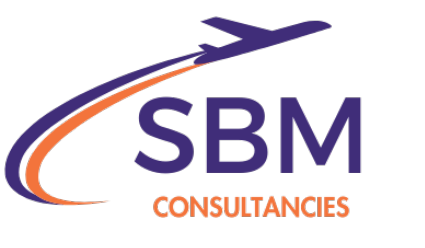What is a Skilled Worker Visa?
A Skilled Worker Visa is a type of immigration visa that allows qualified professionals with specific skills to live and work in a foreign country. This visa is typically aimed at individuals who possess expertise in fields such as healthcare, engineering, information technology, finance, education, and other in-demand sectors. The goal is to attract skilled labor to fill labor shortages and contribute to the country’s economy.
Why Do You Need a Skilled Worker Visa?
A Skilled Worker Visa is essential for individuals who want to:
Work in High-Demand Professions: Many countries have labor shortages in skilled professions, and a Skilled Worker Visa allows professionals to fill these gaps.
Gain Employment in a Foreign Country: The visa enables workers to legally work for an employer within the host country.
Pursue Long-Term Opportunities: Skilled Worker Visas often provide the pathway to permanent residency or citizenship after a certain number of years of employment.
Eligibility Criteria for a Skilled Worker Visa
To apply for a Skilled Worker Visa, applicants must generally meet specific eligibility criteria, which can vary depending on the country. Common requirements include:


Skilled Worker Visa Fees?
Application Fees: Fees typically depending on the country and visa duration.
Health and Security Fees: Some countries require applicants to pay additional fees for medical exams or police clearance certificates.
Skilled Worker Visa Denials?
⦁ Insufficient Documentation: Missing or incorrect documentation can lead to a denial.
⦁ Ineligibility: If your job does not meet the skill level or salary threshold, or if you do not have a valid job offer.
⦁ Health or Security Concerns: Failure to pass medical exams or provide police clearance may result in a denial.
⦁ Failure to Meet Financial Requirements: Not showing sufficient funds to support yourself during your stay can lead to rejection.
Can I bring my family with me on a Skilled Worker Visa?
Can I apply for permanent residency after obtaining a Skilled Worker Visa?
Do I need to have work experience to qualify for a Skilled Worker Visa?
How long does it take to get a Skilled Worker Visa?
Types of Skilled Worker Visas

General Skilled Worker Visa:
Duration: Typically granted for 1-5 years, depending on the country and the employment contract.
Key Features: Often provides a pathway to permanent residency or citizenship after a certain number of years.
Skilled Migrant Visa:
Duration: Typically issued for several years, often with pathways to permanent residency.
Key Features: Many countries have "point-based" systems where applicants earn points based on their qualifications, age, experience, and language proficiency.
Health Professional Worker Visa
Duration: Usually granted for 2-5 years, with the possibility of extensions and permanent residency.
Key Features: In countries with shortages in healthcare workers, these visas are given priority.
Temporary Skilled Worker Visa:
Duration: Generally short-term (6 months to 2 years), but it may be extended in some cases.
Key Features: The visa may be linked to a specific employer or job position, and extensions depend on the availability of the job.
Tech/IT Worker Visa:
Duration: The duration varies by country but can be up to 5 years.
Key Features: Many countries have fast-track options for tech workers due to the high demand for skilled workers in the technology sector.
Duration of Stay
Long-term Skilled Worker Visa: Usually issued for 1-5 years, and may be extended. In some cases, a path to permanent residency or citizenship is available after a certain period of time (e.g., 3-5 years).
Important Notes
Overstaying a Skilled Worker Visa: Overstaying your visa may result in fines, deportation, and difficulties in obtaining future visas.
Changes in Employment: If you change employers or your job role, it could affect your visa status, and you may need to apply for a new visa or update your current one.
Work Restrictions: Skilled Worker Visas typically only allow employment with the sponsoring employer and may restrict you from working for other employers.


